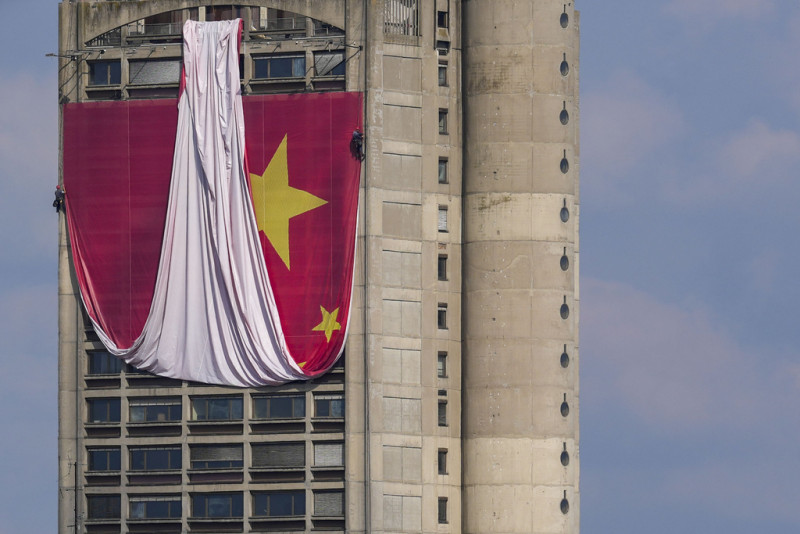Serbia is China’s most important partner in the implementation of the “One Belt One Road” initiative
Chinese President Xi Jinping is paying a two-day visit to Serbia today, Tuesday and tomorrow, Wednesday. Belgrade is the second stop of his European tour. Yesterday he visited France, while after Serbia he will go to Hungary. The visit to Serbia also acquired a symbolic character since it coincided with the 25th anniversary of the NATO bombing of the Chinese embassy in Belgrade on May 7, 1999, when three Chinese journalists were killed.
The Serbian capital was decorated to welcome the Chinese president. Chinese flags are flying all over the main streets in the city, while huge banners with messages of welcome from the Chinese president have been placed on skyscrapers along the highway where the procession will pass.
Xi Jinping, in his article in the Belgrade newspaper “Politica”, described China’s friendship with Serbia as “steely”, pointing out that new perspectives are opening up in the relations between the two countries. He also emphasized that “the friendship of the two peoples is also based on their dedication to global peace, stability, justice and respect for international law. He assured that “China stands by Serbia in facing challenges and supports its independence and territorial integrity.” The Chinese president in his article in “Politics” also referred to the bombing of the Chinese embassy in Belgrade. “25 years ago, NATO brutally bombed the Chinese embassy in the Federal Republic of Yugoslavia, killing 3 Chinese journalists. We must never forget this. The Chinese people value peace, but will never allow a historical tragedy to repeat itself. The friendship between China and Serbia is steeped in the blood shared by the two peoples,” the Chinese president points out.
Video from Belgrade, Serbia on Douyin (China’s TikTok) 🫡 pic.twitter.com/Kargvj6oCw
— 橙色熊猫 (@xiongmaoxuanchn) May 6, 2024
Xi Jinping’s visit to Belgrade is the second in eight years.
Serbia is China’s most important partner in the implementation of the “One Belt One Road” initiative. Major infrastructure projects such as the high-speed rail network from Belgrade to Budapest, the highway to Montenegro, bridges on the Danube and thermal power plants are being built by Chinese companies with heads supplying Chinese banks. The Chinese also own the country’s largest copper mines, in Bor, in eastern Serbia, as well as the Steelworks in Smederevo. The Chinese are also investing in energy by building small hydroelectric plants. The EU has openly expressed its concern about the activities of Chinese companies in Serbia as the rules of healthy competition are not respected. For all the projects undertaken by the Chinese, no tender is held and the conditions of transparency in their financing are often not respected and most contracts are classified as “secret” by the Serbian government. There are not a few Serbian economists who express concern that “easy but expensive Chinese loans” may lead the country to a hostage situation as happened with Montenegro. Serbia’s political leadership, however, does not seem to be worried. Serbian President Aleksandar Vucic announced the signing of thirty new economic agreements during his Chinese counterpart’s visit. Announcing Xi Jinping’s visit, Vucic pointed out that China, in addition to being an important investor, will also be one of the largest trading partners in the near future, since on July 1st, the
Source :Skai
With a wealth of experience honed over 4+ years in journalism, I bring a seasoned voice to the world of news. Currently, I work as a freelance writer and editor, always seeking new opportunities to tell compelling stories in the field of world news.











